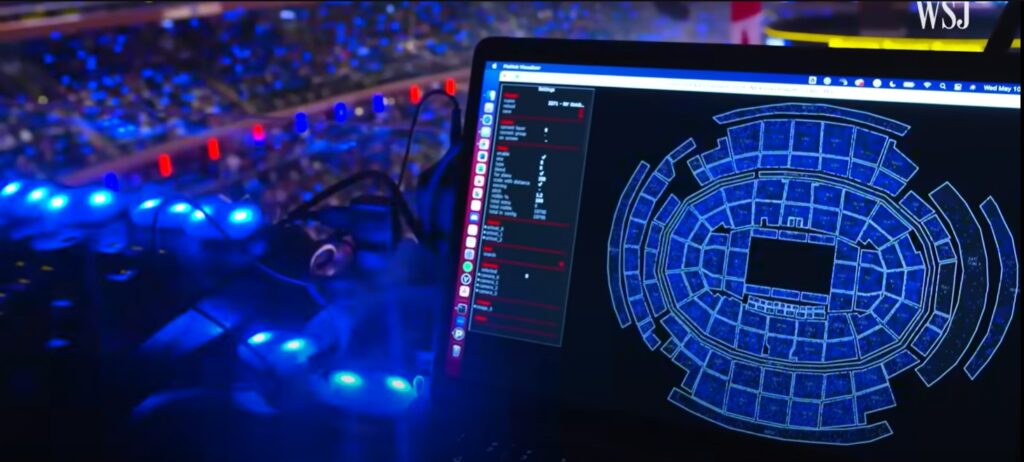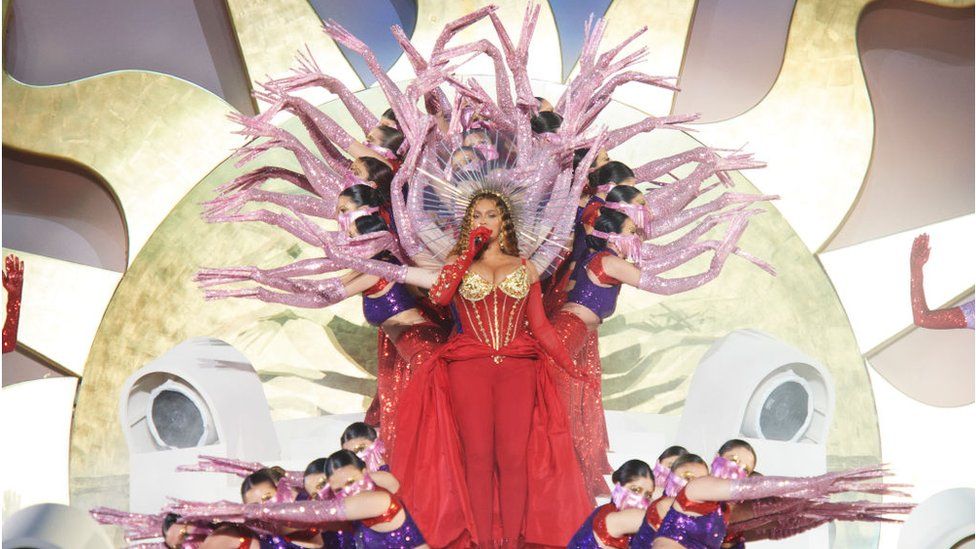In 2022, Wembley, the UK’s largest stadium, hosted as many gigs as it did football matches.

There were 16 sold out concerts from the likes of Coldplay and Ed Sheeran and 1.3 million tickets purchased.
Demand is so great for Beyoncé’s 2023 tour that Tottenham Hotspur has breached its licence by adding an extra tour date at its stadium.
They now have to submit a planning application to Haringey Council to ensure the show can go ahead.
Pioneered by the Beatles in 1965, stadium tours have previously been the reserve of pop’s biggest stars: Michael Jackson, Madonna, Eminem – but recently, they’ve been overtaking arenas as the number one choice for big tours in the UK.
‘A big gamble’

“Why are artists choosing us? It’s a scale thing,” says Steve Davidson, chief operating officer at Sunderland AFC.
“The cost of putting on these big worldwide tours is enormous, so they [artists] have to sell out bigger venues in order to make it pay,” he adds.
Mr Davidson says the Stadium of Light can hold 60,000 people at a typical concert, which has helped attract artists like Beyoncé and Pink to the north-east of England this summer.

“We’ve got space and we’re in the city centre. That’s attractive to [concert] promoters,” Mr Davidson says.
He also notes that artists are putting more effort into staging and production, which on a basic level means travelling with lots and lots of trucks.
“Some artists are coming with 90 HGV trucks – we’ve got space to host them all,” he adds.
Beyoncé fans have been predicting online that her Renaissance World Tour stage could be an estimated 174ft (53m) wide and 84ft long, excluding its runway and additional smaller stage.
Compare this with her last arena tour in 2013, when the main stage was less than half the size of her predicted stadium one – 76ft by 49ft.
So not only would an arena not have enough room to accommodate all those trucks, the stage would also be too big too.
“They have to go from one venue to another and be in and out really quickly – that saves them money,” Steve adds.
But with bigger tours, comes bigger risks, says Wembley’s stadium director Liam Boylan.
“There’s a lot of pressure,” he tells the BBC. “It’s a big gamble for promoters because everything’s bigger: More trucks, more crew, more equipment.”
Promoters are responsible for organising live events and making sure tickets sell. They have to weigh up whether the interest in a particular artist is high enough to fill the seats.
“Promoters will say ‘I’m going to guarantee you so much money’, but if a show doesn’t sell, they’re liable,” Mr Boylan adds.
‘Demand is huge’
Continue reading “Why stars are choosing stadiums over arenas: From Beyoncé to Harry Styles”

